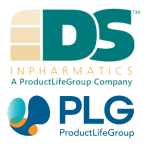As the saying goes, time is money, and this statement could not be more true for the medical device industry. Each day that passes when a device is not approved for marketing is a day of revenue loss. Sadly, it is also a day when patients will not be able to benefit from the device.
Individual country registrations can be challenging. In many cases, it is not as simple as gathering existing documents and transferring them to the country representative. Each country has its own set of registration rules, requirements, and deadlines.
Numerous countries, for instance, demand that a device be authorized for the market in the United States or the European Union and have post-market surveillance data before beginning registration. Some countries have no regulations, but that list is getting shorter.

Image Credit: DSI, a PLG Company
When it comes to medical device regulatory strategy, three major factors can lead to delays in acquiring approval to market in any country. They are as follows:
- Document and testing strategy
- Submission strategy
- Country strategy
Document and testing strategy
The sooner that Regulatory becomes involved in a project, the more effective it will be. This is because it is a good regulatory professional’s job is to first determine the classification of the device for all countries in which they plan to market it. The form of submission required is then determined.
Then, the Regulatory professional can determine the required documents for submission as well as all of the requirements that apply to the device and Quality System. This will ensure that the proper testing is in place and that the objective evidence (ex. Protocols and Reports) that will go into a submission/registration is being created.
Nobody wants to have to re-test a device as a result of the incorrect standard or variant of the standard being used. In addition, no one wants to perform testing while under agency review because a government agency has asked for additional testing.
Submission strategy
Even though most submissions include instructions on how to put it together, what topics should be covered, and how to finalize the file for review, several other methods can be used.
Examples include:
- How does one choose a Notified Body that is a good partner?
- Can it be justified not to do certain testing?
- Can it be justified not to have used the newest version of a standard?
- When is the best time to submit it?
- Can the data be used from an equivalent device instead of doing new testing?
- How many or what type of changes are too many for a Special 510(k)?
- Is there a requirement for Pre-Sub?
Making a plan will help meet all of the deadlines. Target dates are essential because the submission influences the date of prospective market approval.
Country strategy
- Where can the device be advertised right now? Two years from now? Five years from now?
- What country should the user get the initial marketing approval in? How long will it take? How much will it cost?
- How can one be prepared for additional registrations/marketing approvals, after the initial approval, without revising or creating new documents?
- What are the timelines?
- Which countries require their clinical study or device samples sent to their testing lab?
- Which countries require registering through an in-country distributor?
- Which languages must the labeling be translated to?
- Which countries are considering or are in the process of creating new regulations?
The aforementioned questions, as well as many others, can be answered by a Regulatory professional at the start of a project, so users have all the information that they need to make choices that makes sense for the company and allow them to plan to meet its goals and target dates.
A seasoned Regulatory professional has the resources and understanding of what is going on around the world, which can save a company time and money throughout the project. If the project requires a seasoned Regulatory professional, contact DSI today.
About DS InPharmatics 
DS InPharmatics (DSI) provides regulatory, technical, and project management consulting services to healthcare product companies that manufacture and/or market pharmaceuticals, biopharmaceuticals, and cellular and gene therapy products.
Since 2007 we have provided our clients with innovative strategies and exceptional quality work products intended to enhance product development, approval, and marketing presence. Whether advocating CMC strategy, directing CMC operations or developing CMC submission content that represent the best interests of emerging biotech, we focus on the critical CMC issues and build programs that enhance development.
In April 2021 we were thrilled to announce that DSI has just become part of ProductLife Group.
French-headquartered ProductLife Group (PLG) is well-known in the Life Sciences market. It has a track record of successfully managing global outsourcing programs and insourcing services for its international client base. The company is on a mission to help transform human health outcomes by optimizing regulatory affairs, safety & vigilance, and quality compliance for life sciences organizations worldwide.
The fit between our two organizations could not be more perfect. We will complement PLG's growing biotech services portfolio. US biotech sponsors recognize DSI as a leader in consulting for go-to-market strategies and RA pre-market consulting. At the same time, PLG has a strong reputation for managing end-to-end outsourcing of regulatory affairs and pharmacovigilance activities worldwide.
Our merger with PLG will harness our combined strengths, offering our clients on both sides of the Atlantic support with their developed drugs approvals and post-approvals compliance, plus advisory services on the best market strategies to deliver a rapid ROI on their development. Together we will offer our clients increased pharmacovigilance capabilities - including a QPPV; pharmacovigilance consulting; and a fully validated safety database - as well as complementary toxicology-related services; RIM/electronic document management services; and support for medical device regulatory requirements.
We see enormous potential in this new chapter for DSI and you, our clients. As a PLG company, we have the opportunity to become part of a global force in life sciences regulatory and compliance solutions and services, and we're incredibly excited to add our momentum to that effort.
Sponsored Content Policy: News-Medical.net publishes articles and related content that may be derived from sources where we have existing commercial relationships, provided such content adds value to the core editorial ethos of News-Medical.Net which is to educate and inform site visitors interested in medical research, science, medical devices and treatments.